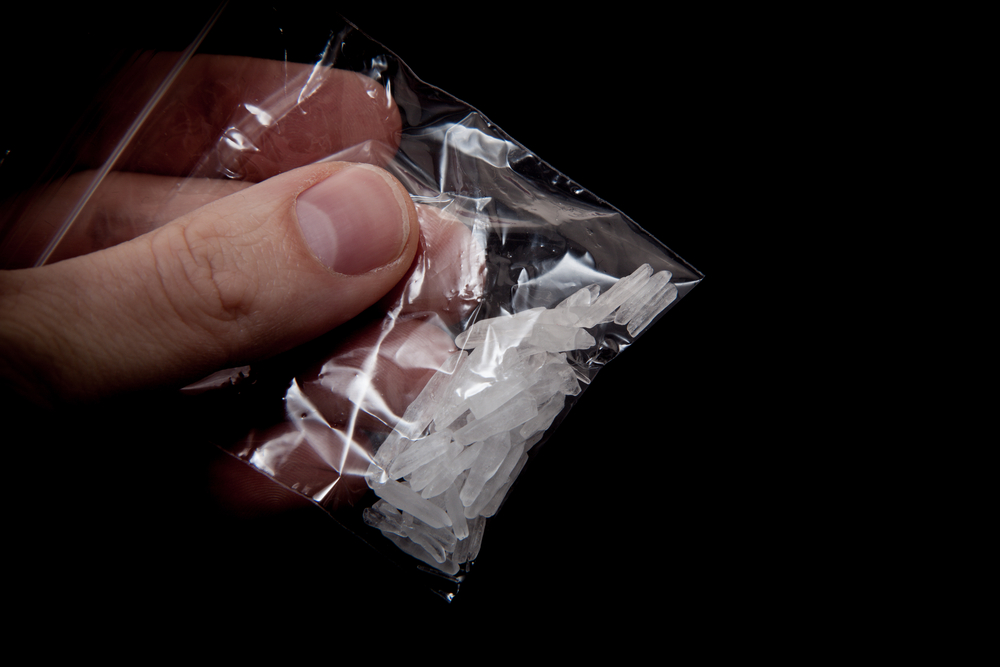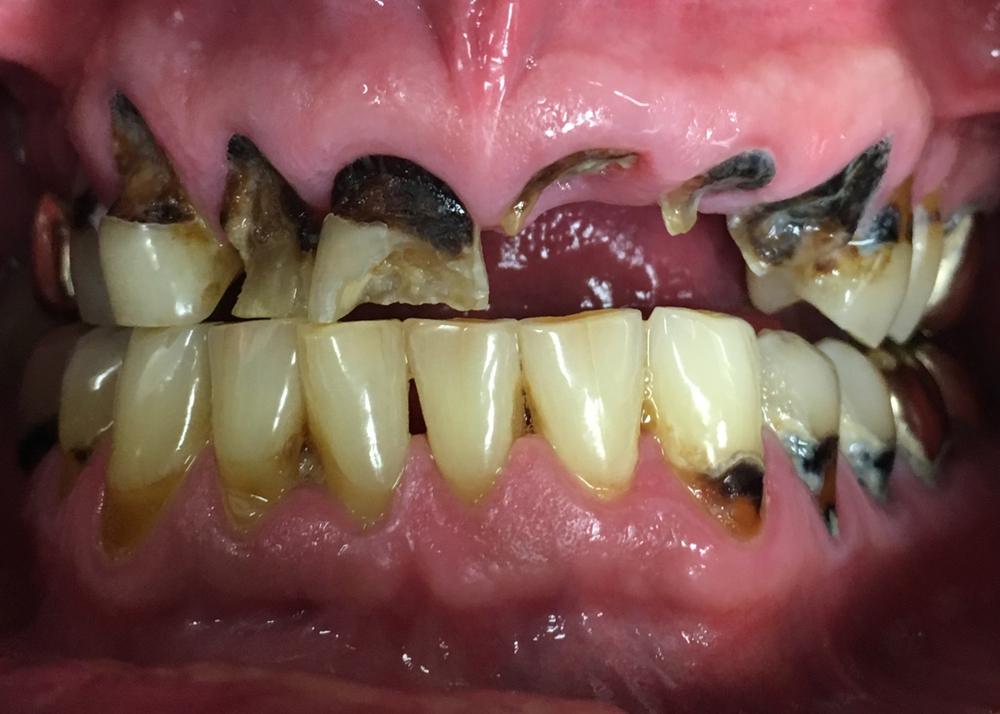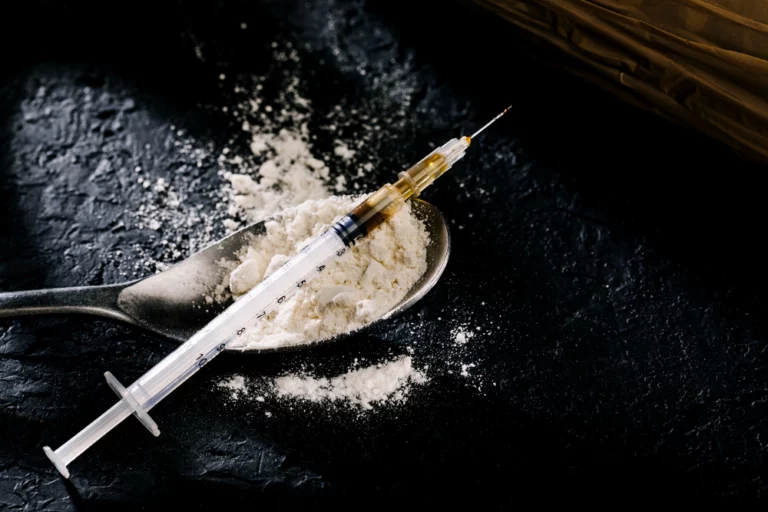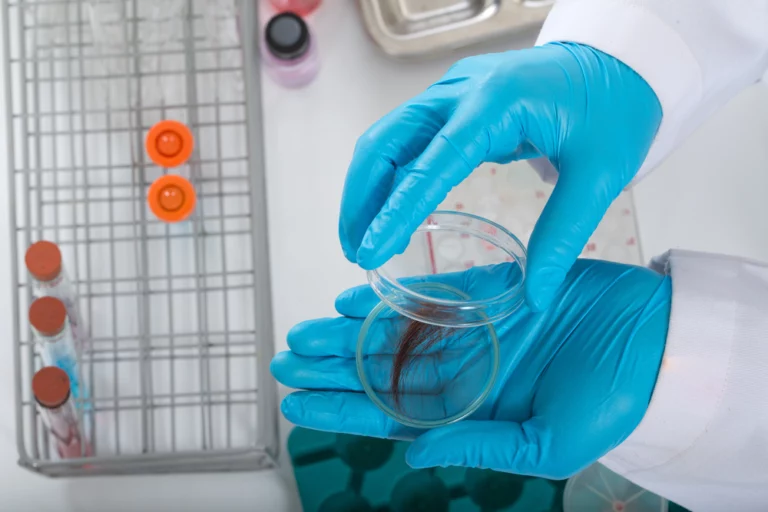You may have heard of meth mouth before, but what exactly is it? Continue reading to learn more about how meth destroys teeth and the many other severe health risks this drug causes.
Methamphetamine, known as meth or crystal meth, is a highly addictive drug that causes serious oral health issues, including tooth decay, staining, rotting, and gum disease, otherwise known as meth mouth
What is Meth?
Methamphetamine, known as meth, crystal meth, crystal, crank, or tina, is a stimulant that affects the central nervous system and produces euphoria and increased energy. It is usually a white powder with no smell and a bitter taste. It can also be in a semi-transparent crystallized form or in pill form made from compressed powder.
Methamphetamine has longer-lasting and more potent effects than amphetamines because it crosses the blood-brain barrier more rapidly. Amphetamines are listed by the Drug Enforcement Agency as Schedule II drugs. This category indicates that the government believes there is a potential for abuse and addiction.
What Does a Meth High Feel Like?
Users of methamphetamine may experience a surge in confidence, energy, and pleasure beyond what they’re used to. As with other abused substances, methamphetamine can both result in short-term and long-term negative consequences. The methamphetamine high is a result of both physical and mental alterations caused by its effect on the brain and nervous system. People who use methamphetamine may experience the following:
- Rush of adrenaline
- Increase in energy
- Rapid talking
- Sense of invincibility
- Increased Strength and stamina
- Lack of appetite
- Boost in confidence
- Euphoria
- Paranoia
- Hallucinations
- Aggression
- High heart rate
- Confusion
- Feeling like bugs are crawling under skin
What is Meth Mouth?
Meth addicts can suffer from serious oral problems and poor dental health, resulting in “meth mouth.” The teeth of a meth user will degenerate in the beginning, becoming discolored, decayed, and suffering from severe gum disease, causing the teeth to eventually fall out. The American Dental Association lists the following symptoms of meth mouth:
- Swollen, red gums
- Dry mouth
- Bleeding gums
- Tooth discoloration
- Chipped teeth
- Hollowed out teeth
- Tooth loss
Causes of Meth Mouth
We’ve now covered what meth mouth is; now you may be wondering why meth has such harmful effects on the mouth. The following are the most frequent reasons:
Lack of Saliva
Methamphetamine causes the mouth to become dry by reducing salivary flow. Saliva plays an important role in maintaining oral pH balance by neutralizing acid in the mouth. When the salivary glands are depleted from long-term meth use, the mouth becomes excessively acidic, and the teeth begin to decay as a result.
Sugar Cravings
The craving for sugary drinks is another symptom of meth mouth. Meth addicts frequently lose weight, since they have an aversion to food. Since meth users frequently have a low appetite, they usually consume only sugary foods and beverages. This habit can lead to malnutrition and tooth decay as well as oral dryness and cavities because only sugary items and sweets are consumed. Bacteria thrive in this environment, thanks to the combination of dry mouth and sugary foods.
Neglecting Oral Hygiene
Those addicted to methamphetamine are so involved in seeking their next “high” that they are no longer concerned with anything else. Unfortunately, this results in other things that were once considered important no longer being a priority. Meth users frequently neglect oral hygiene, brushing, and flossing for long periods of time, which only adds to progressive tooth decay.
Teeth Grinding
Meth abuse can cause grinding of the teeth or clenching of the teeth. A meth user’s teeth may be grinding without even knowing it, since meth is a stimulant that raises the heart rate and metabolism. This additional pressure put on weakened teeth leads to teeth cracking, breaking, and in some cases falling out completely.
Chemical Erosion
Meth is composed of hazardous chemicals that eat away at tooth enamel. In addition to all the other harmful effects that meth has on the mouth, meth users’ teeth are already more susceptible to damage. Without protective enamel, the teeth are easily damaged by chemicals and begin to rot more quickly.
Can Meth Mouth Be Treated?
When oral symptoms of meth mouth begin to show, the damage is usually at the point of being irreversible. Dentists are unable to repair or reverse the level of tooth decay and corrosion found in meth users. However, recovering addicts often choose to have cosmetic dental treatments to improve their smiles and confidence.
Dentists can remove any teeth that are rotting or decayed beyond repair, then attempt to save any teeth that are still healthy. Some patients will require a few crowns, dental implants, or porcelain veneers to restore their teeth. However, other patients will require full dentures after all their teeth are removed due to their addiction.
Other Side Effects of Meth Abuse
Aside from meth mouth, meth abuse has some particularly dangerous risks. Fatal overdoses are the most serious consequence of meth abuse. Even though some adverse effects may improve after discontinuing meth, some damage may be irreparable. There is a higher risk of these effects taking place with heavy and frequent meth use.
Skin Sores
People who have schizophrenia often experience hallucinations of having bugs crawling on or under their skin, which leads to compulsive itching and picking at the skin, resulting in sores on the face and body. Poor hygiene and an impaired immune system can result in sores becoming abscesses or cellulitis.
Premature Aging
When your skin loses elasticity, a weakened immune system and constricted blood vessels are to blame. Your skin will appear dull, dry, and aged after a short period of time if your skin has lost elasticity.
Weight Loss
When meth users go on a bender or rush, they use the drug frequently for several days in a row. During a rush, meth is the only thing on your mind, and your health suffers as a result. This can result in dehydration, malnutrition, and significant weight loss.
Infection
Using contaminated equipment to smoke, inject, or snort the drug poses a risk for spreading infectious diseases. Viral diseases that are transmitted through contact with infected blood include HIV and Hepatitis C.
Methamphetamine Abuse in the United States
According to the DEA, the West and Midwest portions of the United States have the highest levels of methamphetamine availability. In addition to the Northeast and the Southeast, meth is widely available in those regions. According to Montana Legislative Services Division data, meth-related federal crimes occurred more frequently in western states than in states east of the Mississippi River in 2018. In many federal districts, meth-related crimes accounted for less than one-third of drug convictions. Montana, however, recorded 61% of federal drug cases involving meth. In neighboring states like Idaho, South Dakota, North Dakota, and Wyoming, methamphetamine-related convictions were also high in 2018.
According to the National Institute on Drug Abuse (NIDA), approximately 2.6 million individuals have tried meth within the past year, about 1.5 million people currently struggle with a methamphetamine use disorder, and an estimated 23,837 individuals experienced a fatal methamphetamine overdose in 2020 alone.
Treatment for Meth Addiction
No two people are the same and meth addiction treatment looks different for everybody. However, the following are services and treatments typically administered to individuals who seek professional, clinical assistance.
Detox
Methamphetamine Detox is often the first phase of addiction treatment. A clinician should always be present to monitor the safe removal of methamphetamine from the body. Medically-supervised detox is a safer and more effective treatment, as doctors are able to monitor vital signs 24/7 and prescribe the appropriate medications to keep patients comfortable and stable during withdrawal phases.
Rehab
An individual’s decision to participate in inpatient or outpatient meth addiction treatment is determined by a range of personal variables. Because meth is extremely addictive and is often abused to avoid psychological and emotional distress, it is particularly difficult to treat. An individual who has abused meth heavily, continuously, and over a long period of time may benefit from an inpatient treatment program.
The individual might relapse and fall back into their old drug abuse cycle if they are not in a safe environment. Inpatient treatment facilities provide a safe setting devoid of temptations or triggers where individuals can regain control over their lives without the risk of relapse. Rehab programs typically range in duration from 30 to 90 days depending on the individual’s needs.
Someone with a milder addiction or obligations that prevent them from leaving home may benefit from an outpatient rehabilitation program. An outpatient rehab program allows the recovering user to continue working or going to school during the day. These programs typically require 10 to 12 hours per week at a local treatment facility for treatment.
Ongoing Care and 12-Step Groups
It is crucial to maintain sobriety after rehab, and joining a support group is one of the best post-rehab options. Crystal Meth Anonymous and Narcotics Anonymous are two of the most widespread post-rehab support organizations. Recovering meth addicts frequently join these organizations in order to connect with others in recovery who understand what they’re going through.
Through these organizations, recovering users are provided with a feeling of camaraderie as they share their stories with others who are in recovery from meth addiction. The 12-step programs in both of these organizations assist addicts in recovering from their addiction by taking inventory of their everyday lives, making amends for those they’ve injured, and assisting and supporting others.
Knoxville Recovery Center is Here to Help
If you or someone you know is suffering from meth mouth or a meth addiction, help is available. In order to promote healing, Knoxville Recovery Center addresses substance abuse issues head-on. Each patient’s treatment program is custom-made to dispel the darkness of their illness and help them live as productive members of society.
In addition to master’s degree counseling and other holistic therapies, clients receive individual and group therapy. You no longer have to continue hurting. We can assist you in leaving your meth addiction behind for good. With our extensive programs and services, you can receive substance abuse treatment and once again look forward to a bright future. Please contact the professionals at Knoxville Recovery Center today so that we may assist you in finally recovering. You are not alone.












